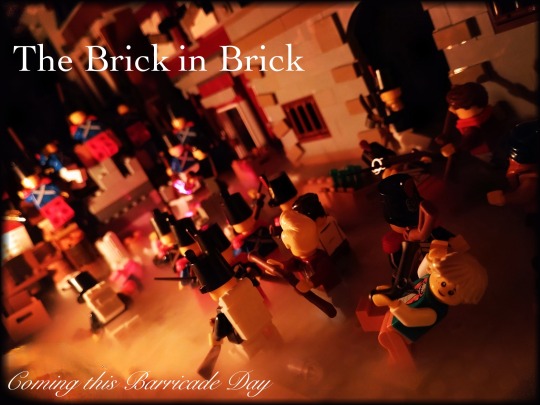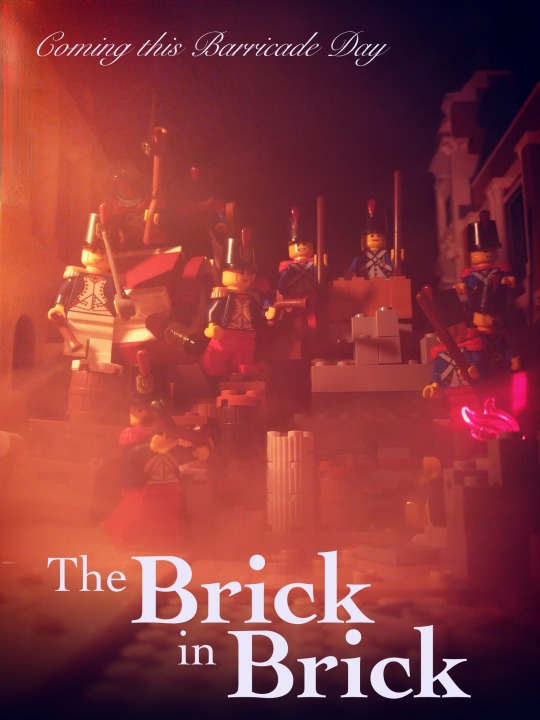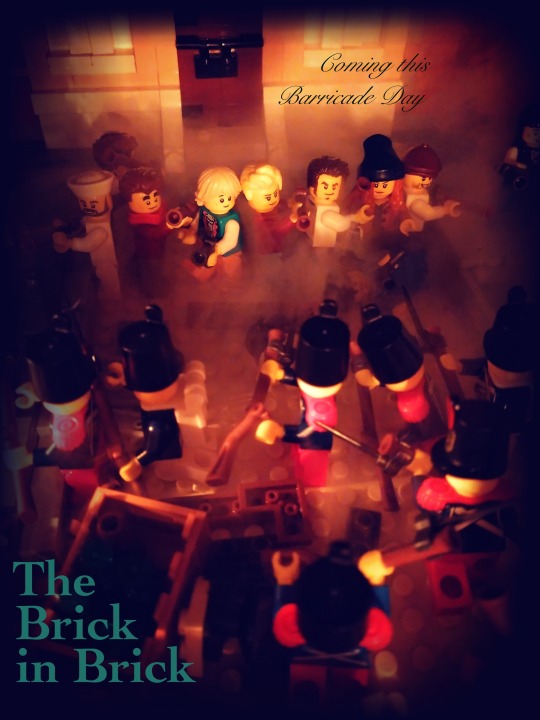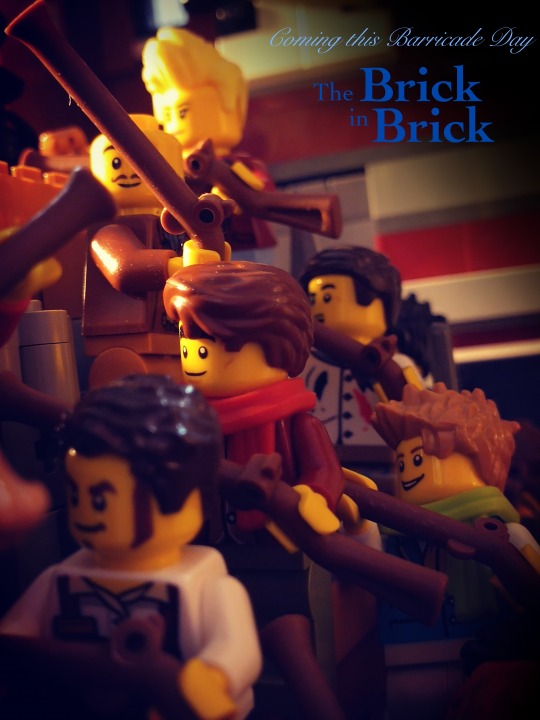Text
Preliminary Gayeties, Part 1
LAIGLE DE MEAUX, as the reader knows, lived more with Joly than elsewhere. He had a lodging, as a bird has one on a branch. The two friends lived together, ate together, slept together. They had everything in common, even Musichetta, to some extent. They were, what the subordinate monks who accompany monks are called, bini. On the morning of the 5th of June, they went to Corinthe to breakfast. Joly, who was all stuffed up, had a catarrh which Laigle was beginning to share. Laigle's coat was threadbare, but Joly was well dressed.

It was about nine o'clock in the morning, when they opened the door of Corinthe.
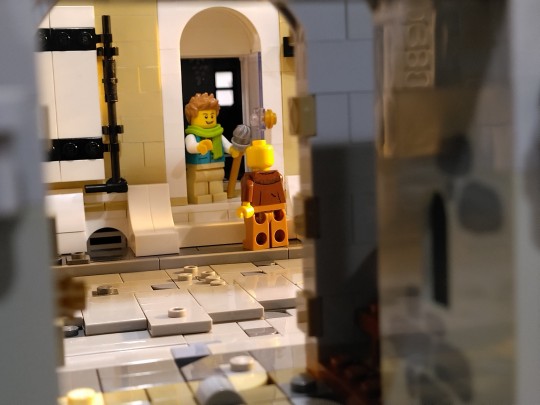
They ascended to the first floor. Matelote and Gibelotte received them.
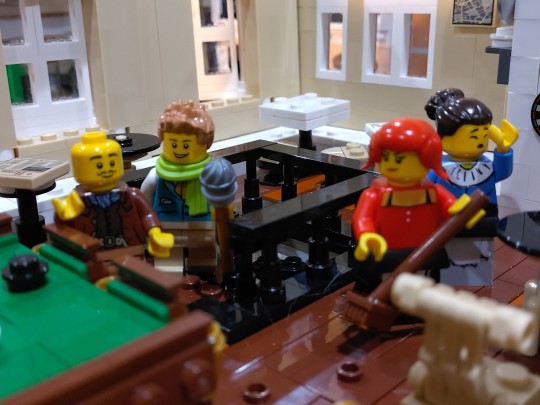
"Oysters, cheese, and ham," said Laigle. And they seated themselves at a table.
The wine-shop was empty; there was no one there but themselves.
Gibelotte, knowing Joly and Laigle, set a bottle of wine on the table.
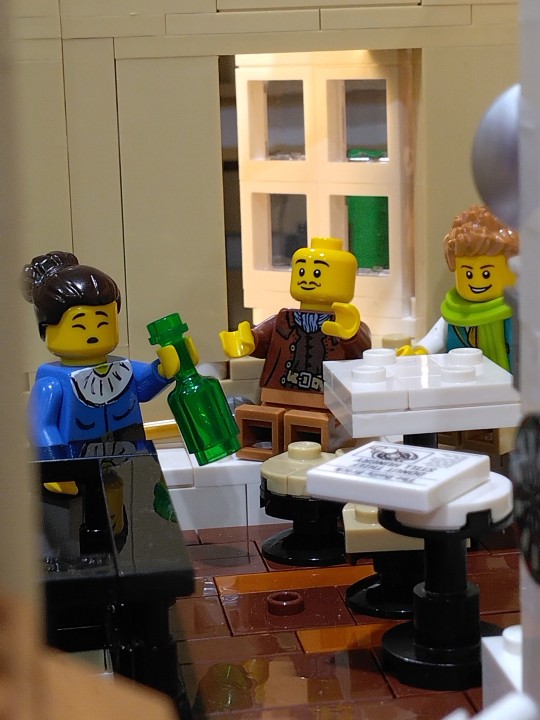
While they were busy with their first oysters, a head appeared at the hatchway of the staircase, and a voice said:
"I am passing by. I smell from the street a delicious odor of Brie cheese. I enter." It was Grantaire.
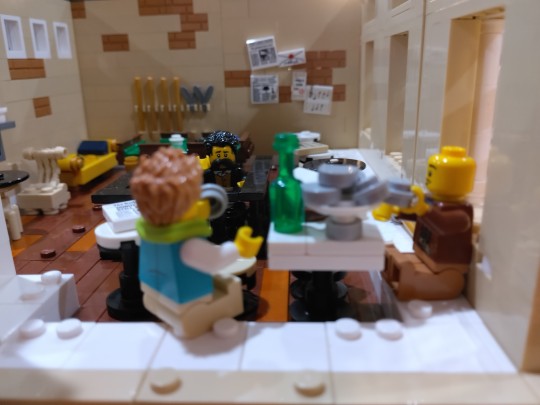
Grantaire took a stool and drew up to the table.
At the sight of Grantaire, Gibelotte placed two bottes of wine on the table. That made three.
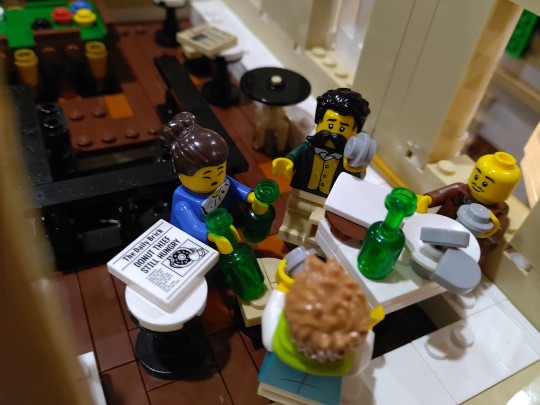
"Are you going to drink those two bottles?" Laigle inquired of Grantaire.
Grantaire replied, "All are ingenious, thou alone art ingenuous. Two bottles never yet astonished a man."
The others had begun by eating, Grantaire began by drinking. Half a bottle was rapidly gulped down.
"So you have a hole in your stomach?" began Laigle again.
“You have one in your elbow," said Grantaire. And after having emptied his glass, he added: "Ah, by the way, Laigle of the funeral oration, your coat is old.”
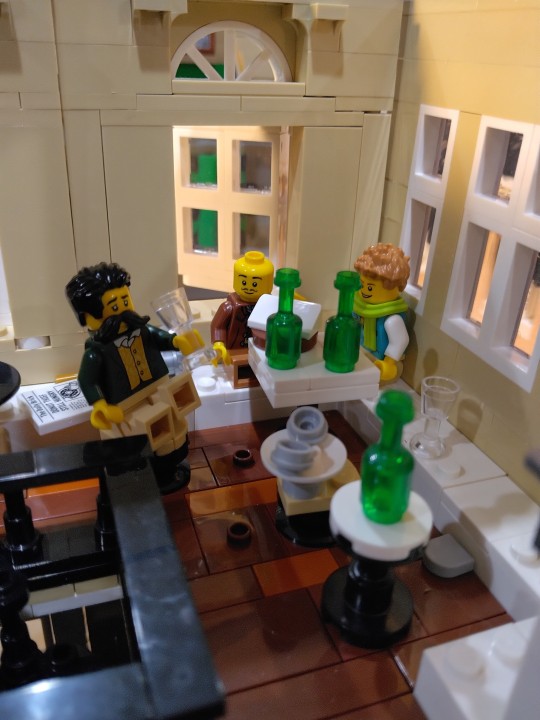
“I should hope so," retorted Laigle. "That's why we get on well together, my coat and I. It has acquired all my folds, it does not bind me anywhere, it is moulded on my deformities, it falls in with all my movements, I am only conscious of it because it keeps me warm. Old coats are just like old friends."
"That's true," ejaculated Joly, striking into the dialogue, "an old goat is an old abi” (ami, friend).
"Especially in the mouth of a man whose head is stuffed up," said Grantaire.
"Grantaire," demanded Laigle, "have you just come from the boulevard?"
"No."
"We have just seen the head of the procession pass, Joly and I."
"It's a marvellous sight," said Joly.
"How quiet this street is!" exclaimed Laigle. "Who would suspect that Paris was turned upside down? How plainly it is to be seen that in former days there were nothing but convents here! In this neighborhood! Du Breul and Sauval give a list of them, and so does the Abbé Lebeuf. They were all round here, they fairly swarmed, booted and barefooted, shaven, bearded, gray, black, white, Franciscans, Minims, Capuchins, Carmelites, Little Augustines, Great Augustines, old Augustines, there was no end of them."
"Don't let's talk of monks," interrupted Grantaire, "it makes one want to scratch oneself."
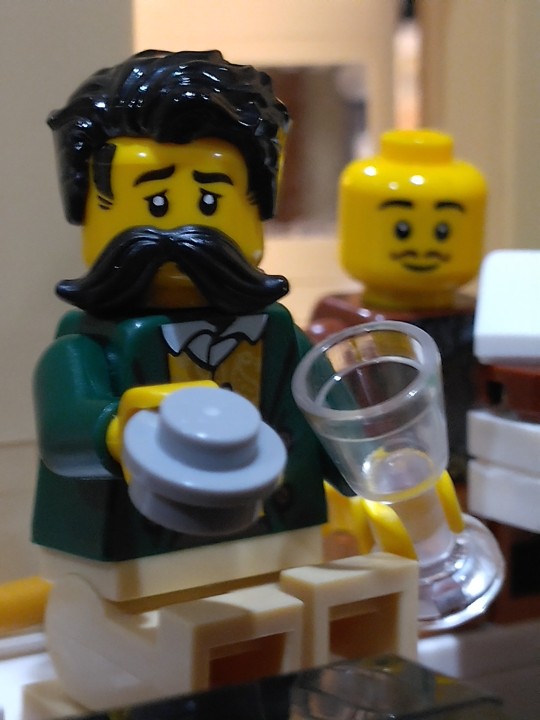
“Bouh! I've just swallowed a bad oyster. Now hypochondria is taking possession of me again. The oysters are spoiled, the servants are ugly. I hate the human race. I just passed through the Rue Richelieu, in front of the big public library. That pile of oyster-shells which is called a library is disgusting even to think of. What paper! What ink! What scrawling!
"And then, I met a pretty girl of my acquaintance, who is as beautiful as the spring, worthy to be called Floréal, and who is delighted, enraptured, as happy as the angels, because a wretch yesterday, a frightful banker all spotted with small-pox, deigned to take a fancy to her! Alas! woman keeps on the watch for a protector as much as for a lover; cats chase mice as well as birds. Two months ago that young woman was virtuous in an attic, she adjusted little brass rings in the eyelet-holes of corsets, what do you call it? She sewed, she had a camp bed, she dwelt beside a pot of flowers, she was contented. Now here she is a bankeress. This transformation took place last night. I met the victim this morning in high spirits. The hideous point about it is, that the jade is as pretty to-day as she was yesterday. Her financier did not show in her face. Roses have this advantage or disadvantage over women, that the traces left upon them by caterpillars are visible. Ah! there is no morality on earth. I call to witness the myrtle, the symbol of love, the laurel, the symbol of air, the olive, that ninny, the symbol of peace, the apple-tree which came nearest rangling Adam with its pips, and the fig-tree, the grandfather of petticoats. As for right, do you know what right is? The Gauls covet Clusium, Rome protects Clusium, and demands what wrong Clusium has done to them. Brennus answers: ‘The wrong that Alba did to you, the wrong that Fidenæ did to you, the wrong that the Eques, the Volsci, and the Sabines have done to you. They were your neighbors. The Clusians are ours. We understand neighborliness just as you do. You have stolen Alba, we shall take Clusium.’ Rome said: ‘You shall not take Clusium.’ Brennus took Rome. Then he cried: ‘Væ victis!’ That is what right is. Ah! what beasts of prey there are in this world! What eagles! It makes my flesh creep.”
He held out his glass to Joly, who filled it, then he drank and went on, having hardly been interrupted by this glass of wine, of which no one, not even himself, had taken any notice:—
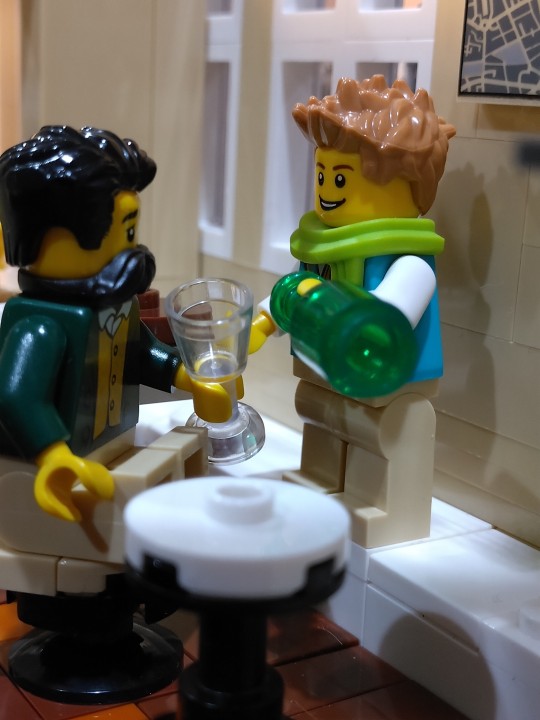
“Brennus, who takes Rome, is an eagle; the banker who takes the grisette is an eagle. There is no more modesty in the one case than in the other. So we believe in nothing. There is but one reality: drink. Whatever your opinion may be in favor of the lean cock, like the Canton of Uri, or in favor of the fat cock, like the Canton of Glaris, it matters little, drink. You talk to me of the boulevard, of that procession, et cætera, et cætera. Come now, is there going to be another revolution? This poverty of means on the part of the good God astounds me. He has to keep greasing the groove of events every moment. There is a hitch, it won’t work. Quick, a revolution! The good God has his hands perpetually black with that cart-grease. If I were in his place, I’d be perfectly simple about it, I would not wind up my mechanism every minute, I’d lead the human race in a straightforward way, I’d weave matters mesh by mesh, without breaking the thread, I would have no provisional arrangements, I would have no extraordinary repertory. What the rest of you call progress advances by means of two motors, men and events. But, sad to say, from time to time, the exceptional becomes necessary. The ordinary troupe suffices neither for event nor for men: among men geniuses are required, among events revolutions. Great accidents are the law; the order of things cannot do without them; and, judging from the apparition of comets, one would be tempted to think that Heaven itself finds actors needed for its performance. At the moment when one expects it the least, God placards a meteor on the wall of the firmament. Some queer star turns up, underlined by an enormous tail. And that causes the death of Cæsar. Brutus deals him a blow with a knife, and God a blow with a comet. Crac, and behold an aurora borealis, behold a revolution, behold a great man; ’93 in big letters, Napoleon on guard, the comet of 1811 at the head of the poster. Ah! what a beautiful blue theatre all studded with unexpected flashes! Boum! Boum! extraordinary show! Raise your eyes, boobies. Everything is in disorder, the star as well as the drama. Good God, it is too much and not enough. These resources, gathered from exception, seem magnificence and poverty. My friends, Providence has come down to expedients. What does a revolution prove? That God is in a quandry. He effects a coup d’état because he, God, has not been able to make both ends meet. In fact, this confirms me in my conjectures as to Jehovah’s fortune; and when I see so much distress in heaven and on earth, from the bird who has not a grain of millet to myself without a hundred thousand livres of income, when I see human destiny, which is very badly worn, and even royal destiny, which is threadbare, witness the Prince de Condé hung, when I see winter, which is nothing but a rent in the zenith through which the wind blows, when I see so many rags even in the perfectly new purple of the morning on the crests of hills, when I see the drops of dew, those mock pearls, when I see the frost, that paste, when I see humanity ripped apart and events patched up, and so many spots on the sun and so many holes in the moon, when I see so much misery everywhere, I suspect that God is not rich. The appearance exists, it is true, but I feel that he is hard up. He gives a revolution as a tradesman whose money-box is empty gives a ball. God must not be judged from appearances. Beneath the gilding of heaven I perceive a poverty-stricken universe. Creation is bankrupt. That is why I am discontented. Here it is the 4th of June, it is almost night; ever since this morning I have been waiting for daylight to come; it has not come, and I bet that it won’t come all day. This is the inexactness of an ill-paid clerk. Yes, everything is badly arranged, nothing fits anything else, this old world is all warped, I take my stand on the opposition, everything goes awry; the universe is a tease. It’s like children, those who want them have none, and those who don’t want them have them. Total: I’m vexed.
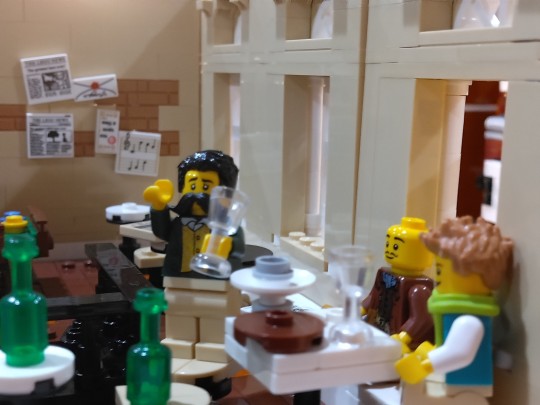
14 notes
·
View notes
Text

15 notes
·
View notes
Text
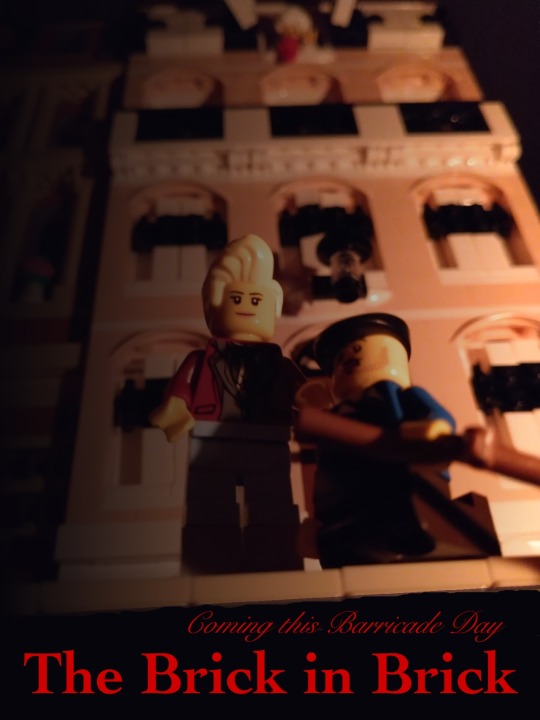
The lego barricade project will be posting on this blog in real time during barricade day (June 5-6)! I have 55 posts queued, covering every chapter that takes place at least partially in or near the barricade--so, nothing from The Rue de l'Homme Armé, no Dawn, no Scylla and Charybdis, and no How Brother Becomes Father. I'll be posting the Hapgood text of each chapter with the lego images as illustrations (some of them in sections, for the longer and denser chapters).
I have been building since January and photographing since March, and I am SO EXCITED to share this project!
11 notes
·
View notes
Text
Have a few sneak peeks at my barricade day project in progress, courtesy of Cats:
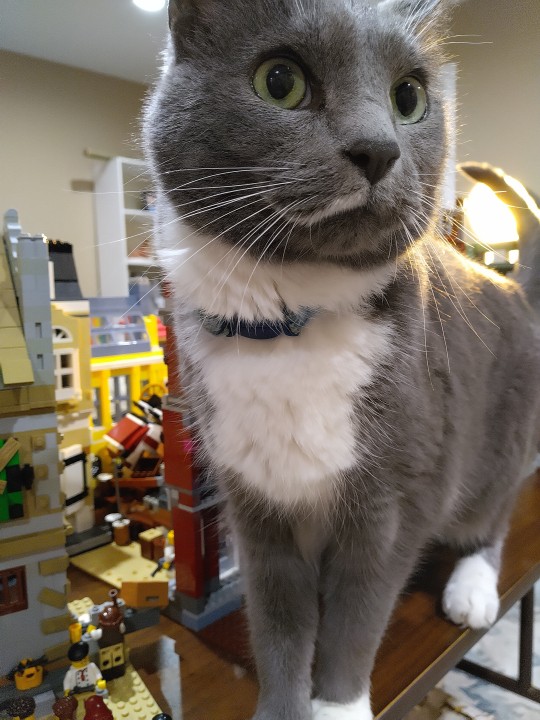
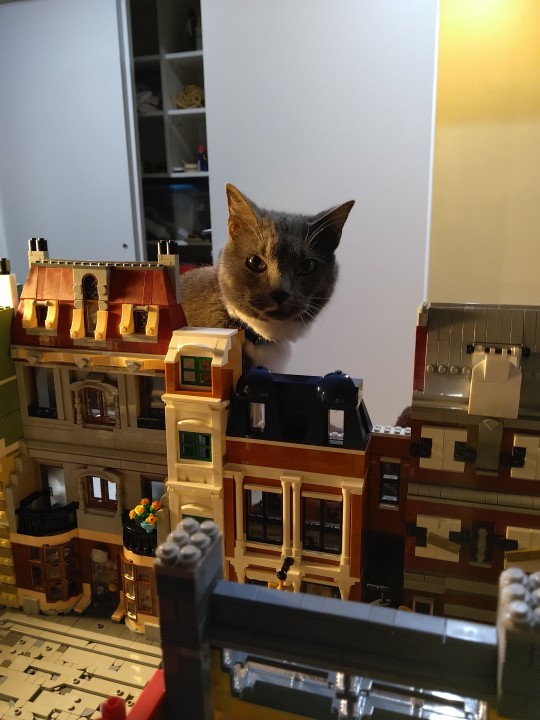
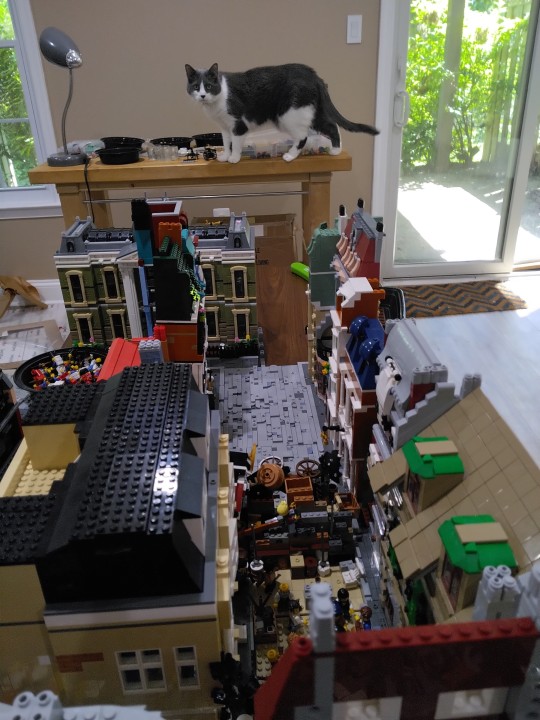
10 notes
·
View notes
Text
History of the Corinthe from its Foundations, Part 2
A room on the ground-floor, where the bar was situated, one on the first floor containing a billiard-table, a wooden spiral staircase piercing the ceiling, wine on the tables, smoke on the walls, candles in broad daylight, this was the style of this cabaret. A staircase with a trap-door in the lower room led to the cellar. On the second floor were the lodgings of the Hucheloup family. They were reached by a staircase which was a ladder rather than a staircase, and had for their entrance only a private door in the large room on the first floor.
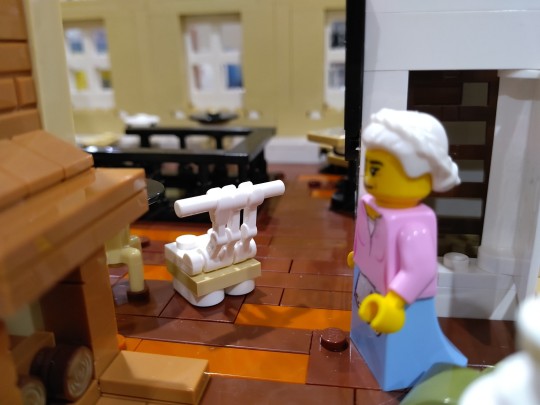
Under the roof, in two mansard attics, were the nests for the servants. The kitchen shared the ground-floor with the tap-room.
Father Hucheloup had, possibly, been born a chemist, but the fact is that he was a cook; people did not confine themselves to drinking alone in his wine-shop, they also ate there. Hucheloup had invented a capital thing which could be eaten nowhere but in his house, stuffed carps, which he called carpes au gras.

These were eaten by the light of a tallow candle or of a lamp of the time of Louis XVI., on tables to which were nailed waxed cloths in lieu of table-cloths. People came thither from a distance.

Hucheloup, one fine morning, had seen fit to notify passers-by of this "specialty"; he had dipped a brush in a pot of black paint, and as he was an orthographer on his own account, as well as a cook after his own fashion, he had improvised on his wall this remarkable inscription:
CARPES HO GRAS.
One winter, the rain-storms and the showers had taken a fancy
to obliterate the S which terminated the first words, and the G which began the third; this is what remained:
CARPE HO RAS.
Time and rain assisting, a humble gastronomical announcement had become a profound piece of advice.

[...] Corinthe was the meeting-place, if not the rallying-point, of Courfeyrac and his friends. It was Grantaire who had discovered Corinthe. He had entered it on account of the Carpe horas, and had returned thither on account of the Carpes au gras.
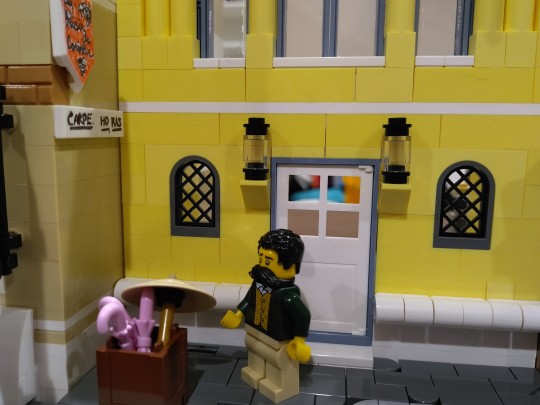
There they drank, there they ate, there they shouted; they did not pay much, they paid badly, they did not pay at all, but they were always welcome.
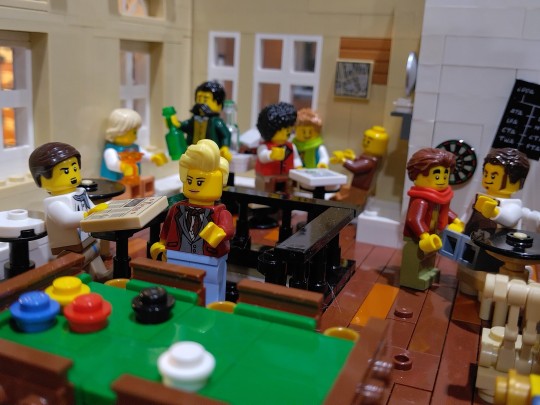
[...] About 1830, Father Hucheloup died. With him disappeared the secret of stuffed carps. His inconsolable widow continued to keep the wine-shop. But the cooking deteriorated, and became execrable; the wine, which had always been bad, became tearfully bad. Nevertheless, Courfeyrac and his friends con tinued to go to Corinthe--out of pity, as Bossuet said.
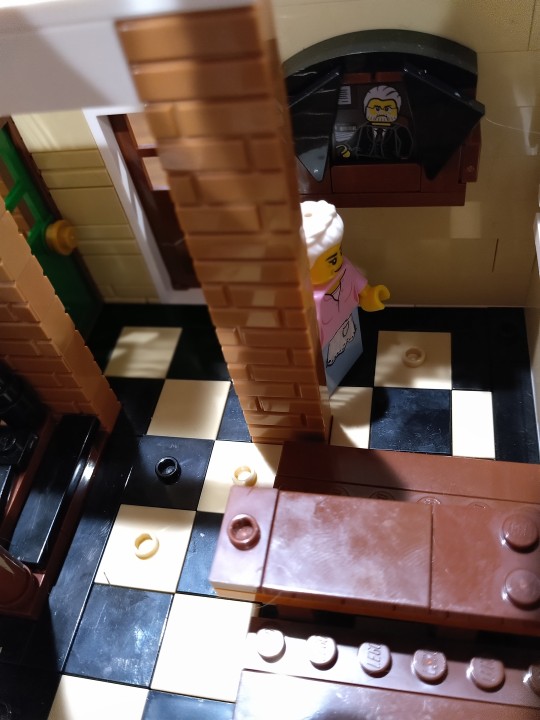
[...] The hall on the first floor, where "the restaurant" was situated, was a large and long apartment encumbered with stools, chairs, benches, and tables, and with a crippled, lame, old billiard-table. It was reached by a spiral staircase which terminated in the corner of the room at a square hole like the hatchway of a ship. This room, lighted by a single narrow window, and by a lamp that was always burning, had the air of a garret. All the four-footed furniture comported itself as though it had but three legs.
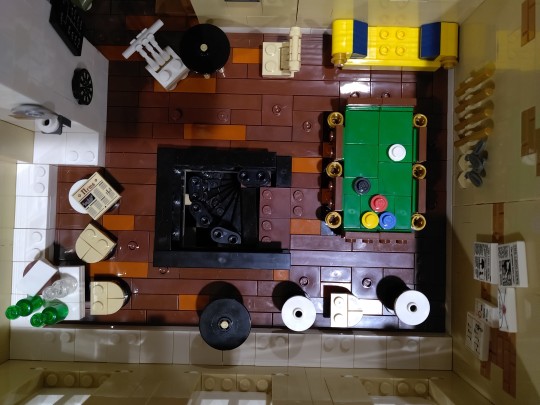
Two serving-maids, named Matelote and Gibelotte, and who had never been known by any other names, helped Mame Hucheloup to set on the tables the jugs of poor wine, and the various broths which were served to the hungry patrons in earthenware bowls. Matelote, large, plump, red-haired, and noisy, the favorite ex-sultana of the defunct Hucheloup, was homelier than any mythological monster, be it what it may; still, as it becomes the servant to always keep in the rear of the mistress, she was less homely than Mame Hucheloup. Gibelotte, tall, delicate, white with a lymphatic pallor, with circles round her eyes, and drooping lids, always languid and weary, afflicted with what may be called chronic lassitude, the first up in the house and the last in bed, waited on every one, even the other maid, silently and gently, smiling through her fatigue with a vague and sleepy smile.
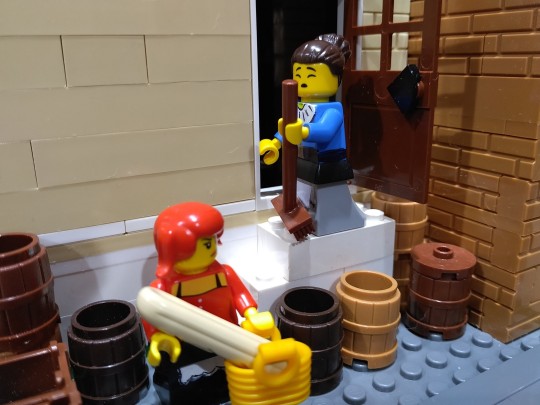
Before entering the restaurant room, the visitor read on the door the following line written there in chalk by Courfeyrac: "Régale si tu peux et mange si tu l'oses.”
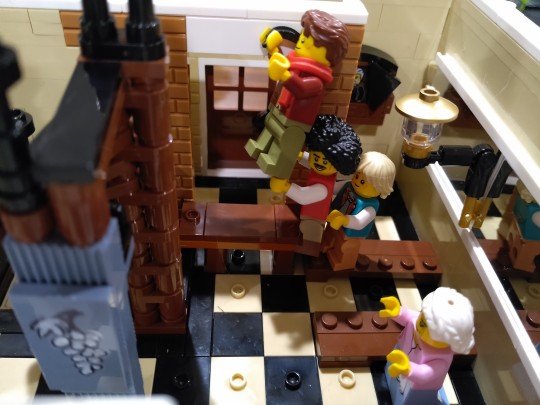
8 notes
·
View notes
Text
History of Corinthe from its Foundation, part 1
THE Parisians who nowadays on entering on the Rue Rambuteau at the end near the Halles, notice on their right, opposite the Rue Mondétour, a basket-maker's shop having for its sign a basket in the form of Napoleon the Great with this inscription:
NAPOLEON IS MADE
WHOLLY OF WILLOW,
have no suspicion of the terrible scenes which this very spot witnessed hardly thirty years ago.

It was there that lay the Rue de la Chanvrerie, which ancient deeds spell Chanverrerie, and the celebrated public-house called Corinthe.
The reader will remember all that has been said about the barricade effected at this point, and eclipsed, by the way, by the barricade Saint-Merry. It was on this famous barricade of the Rue de la Chanvrerie, now fallen into profound obscurity, that we are about to shed a little light.
May we be permitted to recur, for the sake of clearness in the recital, to the simple means which we have already employed in the case of Waterloo. Persons who wish to picture to themselves in a tolerably exact manner the constitution of the houses which stood at that epoch near the Pointe Saint-Eustache, at the northeast angle of the Halles of Paris, where to-day lies the embouchure of the Rue Rambuteau, have only to imagine an N touching the Rue Saint-Denis with its summit and the Halles with its base, and whose two vertical bars should form the Rue de la Grande-Truanderie, and the Rue de la Chanvrerie, and whose transverse bar should be formed by the Rue de la Petite-Truanderie. The old Rue Mondétour cut the three strokes of the N at the most crooked angles. So that the labyrinthine confusion of these four streets sufficed to form, on a space three fathoms square, between the Halles and the Rue Saint-Denis on the one hand, and between the Rue du Cygne and the Rue des Prêcheurs on the other, seven islands of houses, oddly cut up, of varying sizes, placed crosswise and hap-hazard, and barely separated, like the blocks of stone in a dock, by narrow crannies.

We say narrow crannies, and we can give no more just idea of those dark, contracted, many-angled alleys, lined with eight-story buildings.

These buildings were so decrepit that, in the Rue de la Chanvrerie and the Rue de la Petite-Truanderie, the fronts were shored up with beams running from one house to another.

The street was narrow and the gutter broad, the pedestrian there walked on a pavement that was always wet, skirting little stalls resembling cellars, big posts encircled with iron hoops, excessive heaps of refuse, and gates armed with enormous, century-old gratings. The Rue Rambuteau has devastated all that.
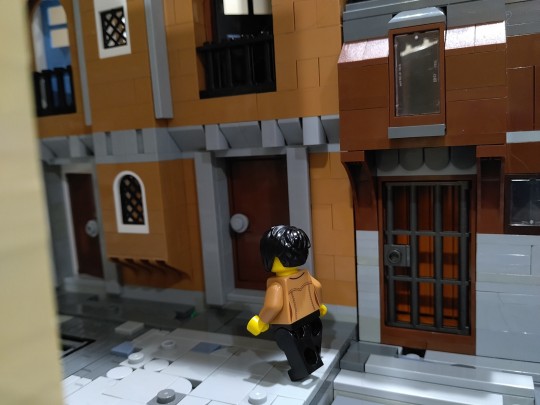
[...] The passer-by who got entangled from the Rue Saint-Denis in the Rue de la Chanvrerie beheld it gradually close in before him as though he had entered an elongated funnel.
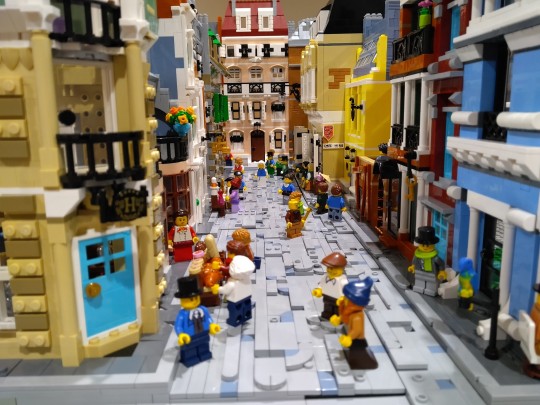
At the end of this street, which was very short, he found further passage barred in the direction of the Halles by a tall row of houses, and he would have thought himself in a blind alley, had he not perceived on the right and left two dark cuts through which he could make his escape. This was the Rue Mondétour, which on one side ran into the Rue de Prêcheurs, and on the other into the Rue du Cygne and the Petite-Truanderie. At the bottom of this sort of cul-de-sac, at the angle of the cutting on the right, there was to be seen a house which was not so tall as the rest, and which formed a sort of cape in the street. It is in this house, of two stories only, that an illustrious wine-shop had been merrily installed three hundred years before.

In the time of Mathurin Regnier, this cabaret was called the Pot-aux-Roses, and as the rebus was then in fashion, it had for its sign-board, a post (poteau) painted rose-color. In the last century, the worthy Natoire, one of the fantastic masters nowadays despised by the stiff school, having got drunk many times in this wine-shop at the very table where Regnier had drunk his fill, had painted, by way of gratitude, a bunch of Corinth grapes on the pink post. The keeper of the cabaret, in his joy, had changed his device and had caused to be placed in gilt letters beneath the bunch these words: "At the Bunch of Corinth Grapes (Au Raisin de Corinthe"). Hence the name of Corinthe. Nothing is more natural to drunken men than ellipses. The ellipsis is the zig-zag of the phrase. Corinthe gradually dethroned the Pot-aux-Roses. The last proprietor of the dynasty, Father Hucheloup, no longer acquainted even with the tradition, had the post painted blue.
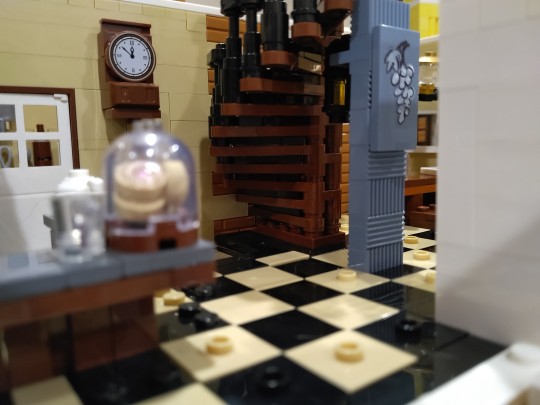
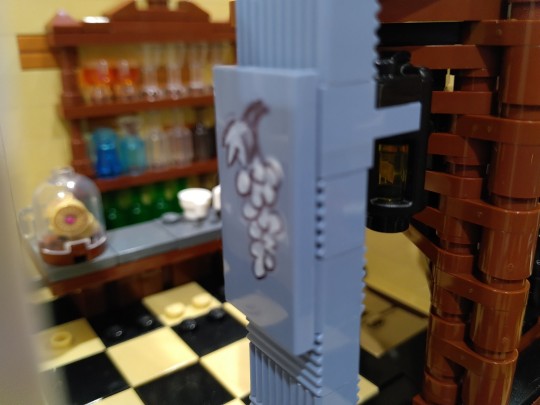
44 notes
·
View notes
